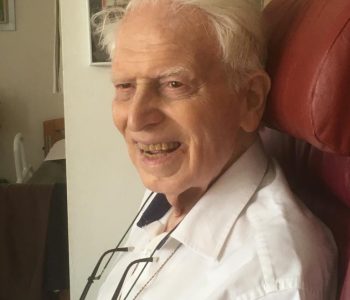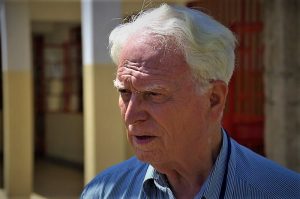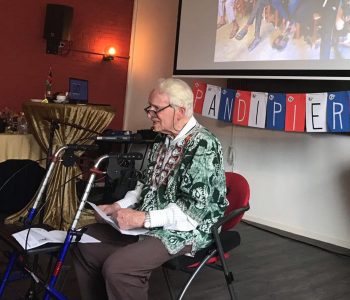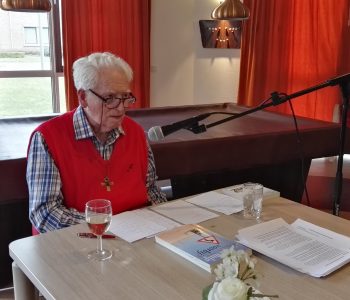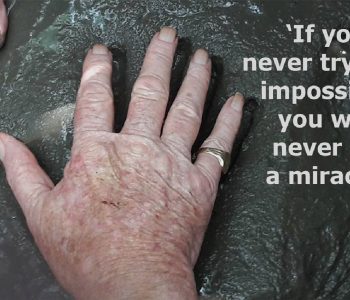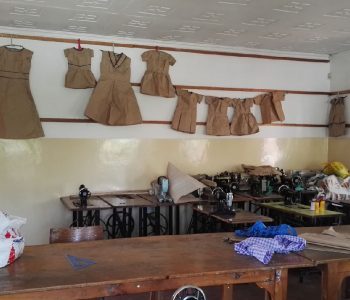 Brieven van Hans
Brieven van Hans
Many people start these days with the question of how I am doing. Well, I’m getting 90 years old. Who can say this? But it has got its price. There are many things I can’t do anymore because of Parkinson. I am much less mobile, but I have no pain. I am doing everything much slower, so time goes twice as fast. I am reading a lot, and that’s something I love to do. I also like to delve into contemporary problems, and fortunately, there are many of them. People also immediately ask me how things are going in Kisumu.
As usual, everything is going well there. But they do have their specific problems. Let me mention one of them. The population is not stable. Normal stability means: growing up somewhere, working, getting older and dying. In our part of Kenya, however, every urban citizen has his or her own rural courtyard. Once retired, everyone goes back to his or her homestead. So it can happen that a community you have built up over many years slowly empties. And fills up again with new people. And so it can happen that everything you have built up disappears silently. But on the other hand, it may also happen that the ideas you have taught the people slowly spread over a large area. But you don’t have a view on that anymore. Let’s say that the seed has been spread out and lies in the field and now has to go its own way. We continue to hope. But in the meantime, the Pandipipieri programmes continue in a normal way, with its staff of more than 50 people.
Here is some news. Bishop Okoth, the Archbishop of Kisumu, has retired. Since 1978 he was in charge here. In 1977 the previous bishop, Bishop Sulumeti, had accepted me and my plans. Bishop Okoth has thus experienced the entire construction of KUAP. He never put a straw in our way, and we liked that. African communities are authoritarian, and being left alone is a great favour. We never gave him a problem, and he never had to help us. We have always been grateful for this kind of policy. We hope that this will continue with the new bishop. Meanwhile we have become an established institution.
Another piece of news. This concerns our residence in Kisumu. Those of you who have visited us remember the Mill Hill House. Originally it was built to host us, foreign missionaries. Meanwhile, almost all of them have disappeared, and many missionary workers are Africans, and they have their own local home. A new formula has now been found for the large guesthouse: it is rented as a kind of small hotel to be a source of income. The Regional Superior continues to live in the small house. The visitor facilities in Nyalenda Centre will remain available for people who come to take part in our programmes over a period of time.
The globalization of Mill-Hill Society continues unstoppably. More and more, our work is now being done by non-Europeans. They continue our dreams, and also our risks. Last month our first Kenyan Mill Hill missionary in Cameroon was murdered by soldiers; he was ordained a priest only last year. He is succeeded in his parish there by a Mill Hill missionary from India. We are becoming international in many ways.
My own ship is now at the quay. Yet I feel that I still have a function in our Pandipieri family. Hopefully you will continue to feel connected with the adventures we have started in Kisumu. Many thanks for what we have been able to do together; new challenges are waiting for us. If you would like to hear more about this, keep reading our messages.
Hans
